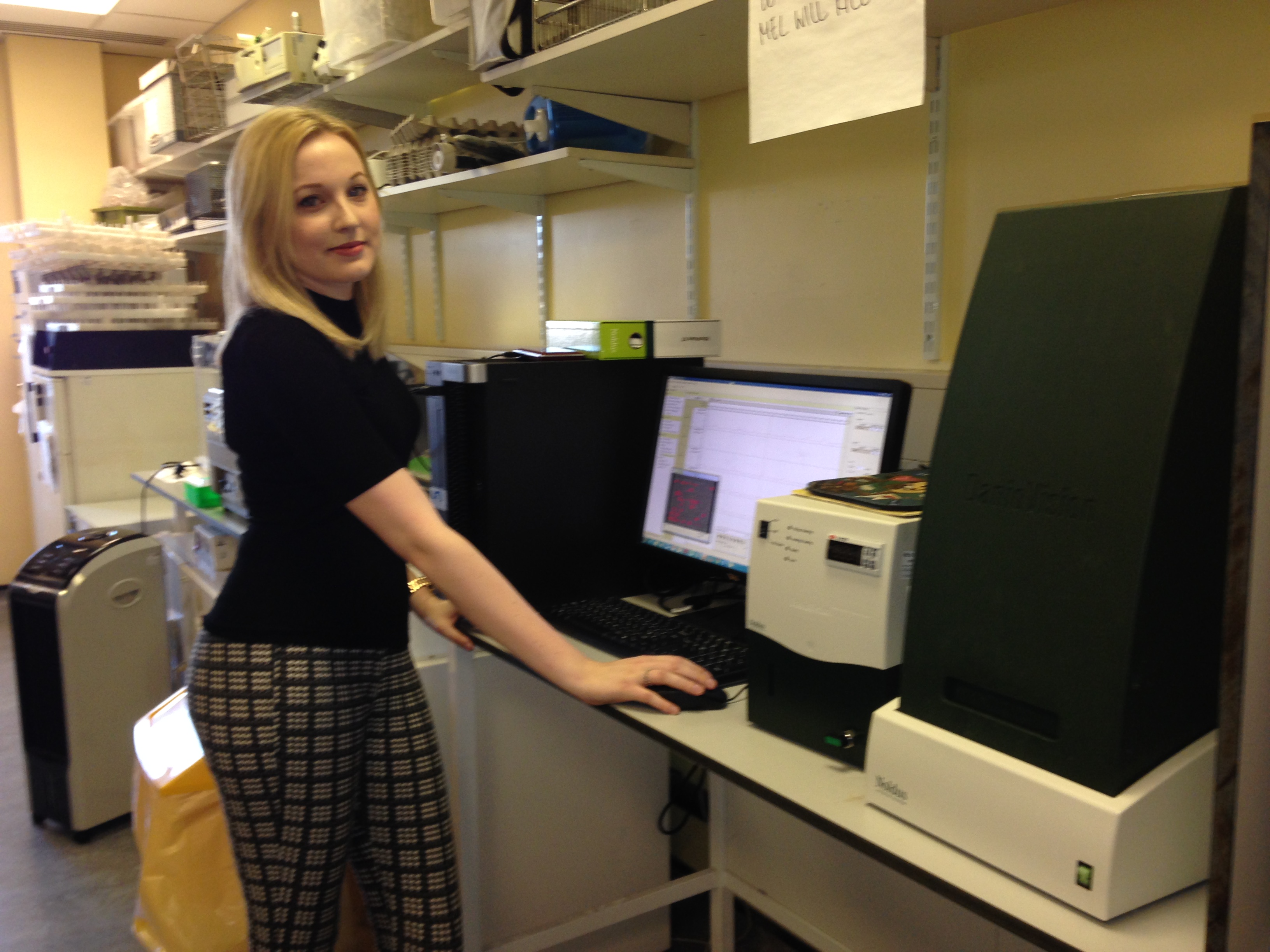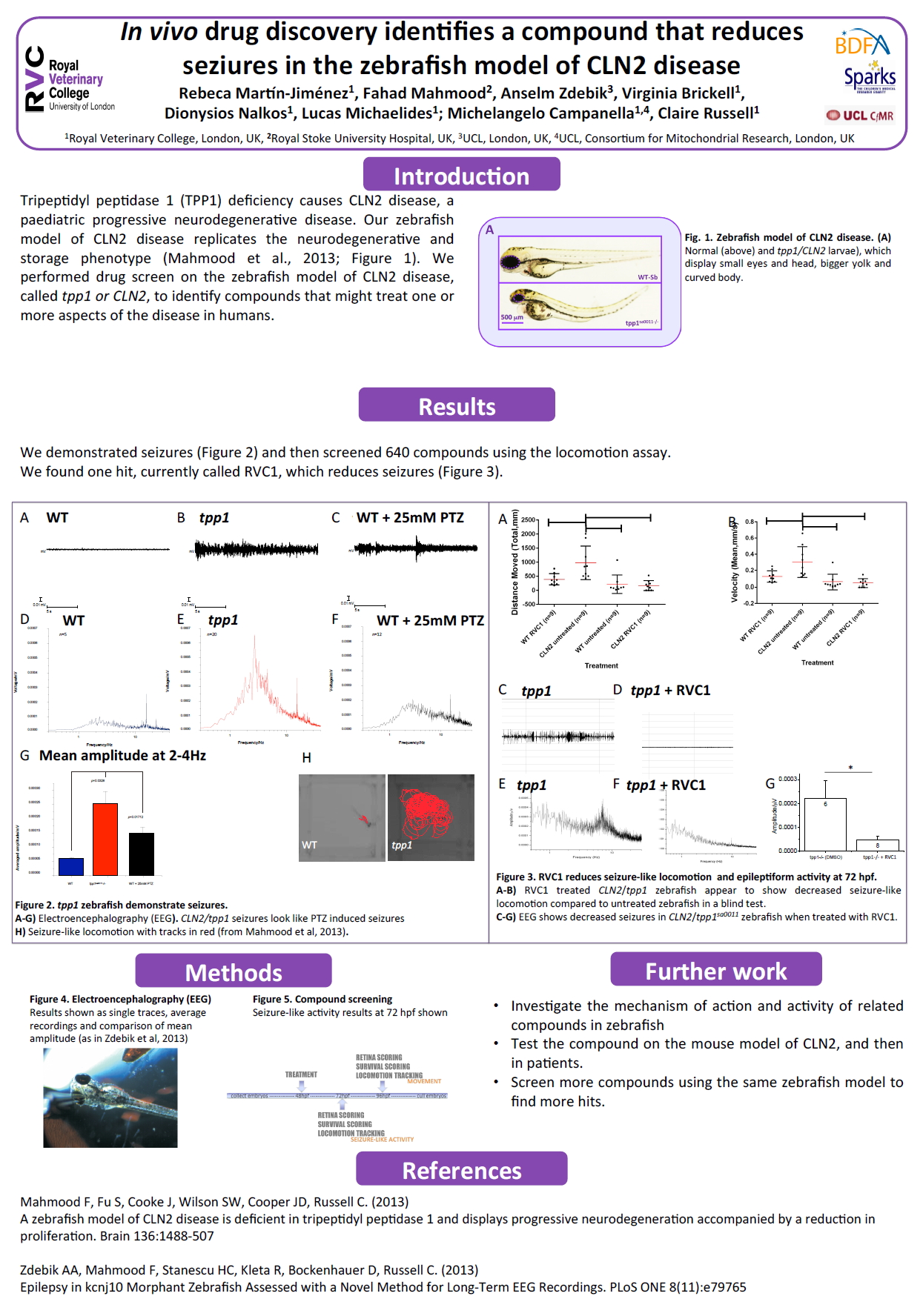

In collaboration with the Freeman Family the BDFA have funded a number of projects in drug discovery in CLN2 disease. In 2014-5 Karen and Martin Freeman, in memory of their daughter Katie, provided over £12 000 to purchase a DanioVision locomotion recording system with funding for a research assistant for a 1-year drug discovery project.
Who is involved?
Dr. Claire Russell and her team at the Royal Veterinary, College, University of London, have great expertise in the use of zebrafish for disease modeling and drug discovery. Gini Brickell was appointed as Research assistant in Dr. Russell’s lab to undertake a drug screen using a CLN2 zebrafish model.
The DanioVision enabled Gini to record live videos of zebrafish and analyse many aspects of their movement. The CLN2sa0011-/- mutant zebrafish model is representative of the human CLN2 disease, and displays typical motor defects including seizure-like activity and reduced locomotion. Using DanioVision they examined the effects of different drugs on these motor behaviours to determine whether there has been any change or improvement. If any drugs appear promising they would be able to look into them in more detail. This research is exciting as it allows a number of different drug compounds to be screen in a relatively short space of time. A promising lead compound was identified and Dr. Russell is undertaking further studies in 2017-8.



